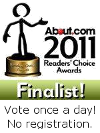 A swift look at the Collect for the 6th Sunday of Ordinary Time.
A swift look at the Collect for the 6th Sunday of Ordinary Time.
This is an ancient prayer, found already in the 8th c. Liber sacramentorum Gellonensis. I don’t think it was in the 1962 Missale Romanum or its Roman predecessors.
LATIN TEXT (2002MR):
Deus, qui te in rectis et sinceris manere pectoribus asseris,
da nobis tua gratia tales exsistere,
in quibus habitare digneris.
Pectus signifies a range of things from “the breast bone, chest”, “stomach” and therefore by extension concepts like “courage” and other “feelings, dispositions”. It also refers to the “spirit, soul, mind, understanding.” In the ancient world, the heart was thought in some ways to be the seat also of the mind and understanding and not just of feelings and emotions. It is reasonable to translate this as “upright and pure hearts”. Exsisto according to the mighty Lewis & Short Dictionary is “to step out, emerge” and also “spring forth, proceed, arise, become.” It also means “to be visible or manifest in any manner, to exist, to be.”
SLAVISHLY LITERAL VERSION:
O God, who declare that You remain in upright and pure hearts,
grant us to manifest ourselves to be, by Your grace,
the sort of people in whom You deign to dwell.
LAME-DUCK ICEL (1973 translation of the 1970MR):
God our Father, you have promised to remain for ever
with those who do what is just and right.
Help us to live in your presence.
Quite simply dreadful.
CORRECTED ICEL TRANSLATION:
O God, who teach us that you abide in hearts that are just and true,
grant that we may be so fashioned by your grace
as to become a dwelling pleasing to you.
Better than the lame-duck ICEL. It strays from the Latin at the end. I think they did a back-flip here to avoid using the word “deign”. Is that okay? You decide.
In this Collect the distinction between “be” and “show forth” is tissue thin. We take from this the sense of being on the outside what we are inside, or rather in the case of the outwardly pious and practicing Christian, being sincerely and truly on the inside what we are showing on the outside.
At baptism the Holy Spirit enters our lives in the manner of one coming to dwell in a temple.
With the indwelling of the Holy Spirit comes “habitual” or sanctifying grace and all His gifts and fruits by which we live both inwardly and outwardly in conformity with His presence. We manifest His presence outwardly when He is present within. There is nothing we do to merit this gift of His presence and yet, mysteriously, we still have a role to play in His deigning to dwell in our souls. We can make choices about our lives. We can make use of the gifts and graces God gives, allow Him to make our hands strong enough to hold on to all He deigns to bequeath, and then cooperate in His bringing all good things to completion.
That phrase in today’s prayer, in brutally literal fashion “the sort of people in whom you have deigned to abide” (altered in the new, corrected version) forces us to reflect on our treatment of and conduct towards our neighbor, whom Christ commands us to love in accord with our love of God and self.
Paul writes in 2 Cor 13:11-13:
“Finally, brethren, farewell. Mend your ways, heed my appeal, agree with one another, live in peace, and the God of love and peace will be with you. Greet one another with a holy kiss. All the saints greet you. The grace of the Lord Jesus Christ and the love of God and the fellowship of the Holy Spirit be with you all.”


































No.
No.
I would have chosen “become” or “spring forth” as a more active (albeit non-inclusive) translation of “exsistere.”
I recall that, early in the translation process, the then-chairman of the USCCB liturgy committee, ostensibly acting on behalf of the U.S. bishops, entered a strong objection to the use of the word “deign” (though his similar objection to the use of the word “dew” got more publicity). In consequence, the translation is not so apt as it could be.
In the Orthodox Church, some silly persons object to the word “deign” as a “Western” term. While I confess that to be a tiresome argument, the end result is that we often use “consider worthy” or “think (it) fitting,” or some variation thereof, to translate the Greek “kataxiow,” basically the exact equivalent of the Latin dignare.
Now, I wouldn’t support an opposition to the term “deign” on grounds that it is too “Patriarchal” or anything silly like that. And, while I’m generally a fan of people using, oh, I don’t know, something like a… dictionary… or whatever, when they need to learn the meaning of a new word, I can at least understand the notion that “deign” is a very unused word in modern English.
But, all that taken into consideration: even if they really wanted to do a back-flip to avoid the word, surely they could have used a more accurate turn of phrase. Like, “grant us by Your grace to be the kinds of people, in whom You would think it fitting to make Your abode.”